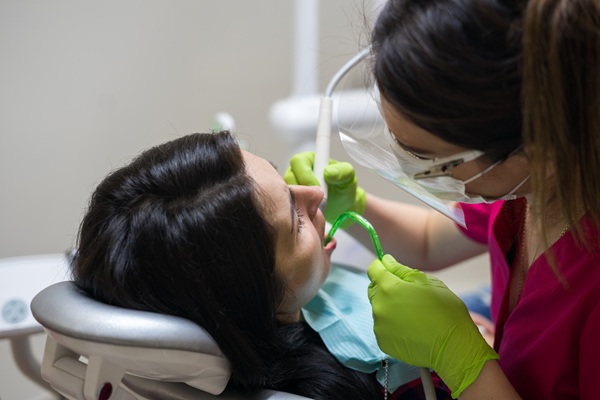How Do Implant-Supported Dentures Work?

Implant-supported dentures are one of the options you should consider if you have lost most of your real teeth. Losing most of your teeth can be a tough experience. It makes you constantly think about the appearance of your mouth, and you might find yourself wanting a bit more after deciding to give dentures a try. Dentures were the primary tooth replacement option for people who have lost most of their natural teeth for decades, but they can take some time to get used to.
Why some opt for implant-supported dentures
Dentures consist of two main parts — artificial teeth that are usually made of acrylic and a plastic framework that rests on the gums. Traditional dentures tend to move around in the wearer's mouth, especially the lower set. It can lead to the formation of sores inside the mouth, the wearer continually having to worry about their teeth falling out and an inability to speak correctly.
Implant-supported dentures are a combination of implants and dentures. The patient gets two to six implants inserted into their jawbone, but, instead of crowns being placed on them, a set of dentures are attached instead. The implants hold the dentures firmly in place, so the wearer no longer has to worry about the prosthetic constantly moving about in their mouth.
In order to qualify for implant-supported dentures, patients should have a sufficient amount of bone tissue to hold the implant in place. Implant-supported dentures can be permanently fixed in place or removable. The removable variety has special attachments that make it possible to connect them to the implants quickly. They are mostly used on the lower set of teeth since dentures worn on that half of the jaw tend to slip the most.
There are two main kinds of removable implant supported dentures:
1. Bar-retained dentures
This variety uses a thin metal bar that is attached to the implants to hold dentures in place. The denture or bar is fitted with a fastening device that is used to clip or fasten the two components together.
2. Ball-retained dentures
These are held in place with a ball-shaped metal connector that attaches directly to the implants. The implants come with corresponding sockets that hold the dentures in place. Both types of removable dentures provide a comfortable way to replace missing teeth without the price tag that comes with replacing multiple teeth with implants.
What goes on during implant installation
A local anesthetic is injected during the start to numb the area that will be worked on. An incision is made into the person's gums to access the jawbone, and the implant is inserted into it. It is left to fuse with the surrounding bone tissue for up to six months. Once the implants have fused with the bone tissue holding them in place, the patient will be able to use them to keep their dentures firmly in place when worn.
Interested in implant-supported dentures?
Looking for a more comfortable missing tooth solution than dentures? Contact our Rockville clinic today to learn more about implant-supported dentures.
Request an appointment here: https://whiteflintfamilydental.com or call White Flint Family Dental at (301) 273-1085 for an appointment in our Rockville office.
Check out what others are saying about our services on Yelp: Read our Yelp reviews.
Recent Posts
An experienced cosmetic dentist can provide dental veneers to help you regain your smile. The custom-fit shells can improve your looks. Each one can even provide support for your teeth. Here are the questions to ask your cosmetic dentist to find out if getting veneers will be a good decision for you.These thin shells go…
A routine dental cleaning plays a critical role in preventing cavities, gum disease, and other oral health concerns. In many cases, patients benefit from two dental cleaning appointments per year. However, certain individuals may require additional cleanings to maintain optimal oral health. A dentist may recommend more frequent visits based on risk factors, existing conditions,…
When gums start to recede and pull away from the teeth, it can alter the appearance of the smile and leave the teeth vulnerable to decay. A cosmetic dentist may fix receding gums, restoring the smile's appearance. While the focus will be on aesthetics, some cosmetic dental procedures may also protect your oral health.Gum recession…
Being unhappy with your smile can impact how you view yourself and socialize. Cosmetic dentists understand this, so they are committed to providing patients with the smile of their dreams. They do this through smile makeovers. Smile makeovers are custom for each patient and encompass various services. Here are the five most common.Dental bonding is…


